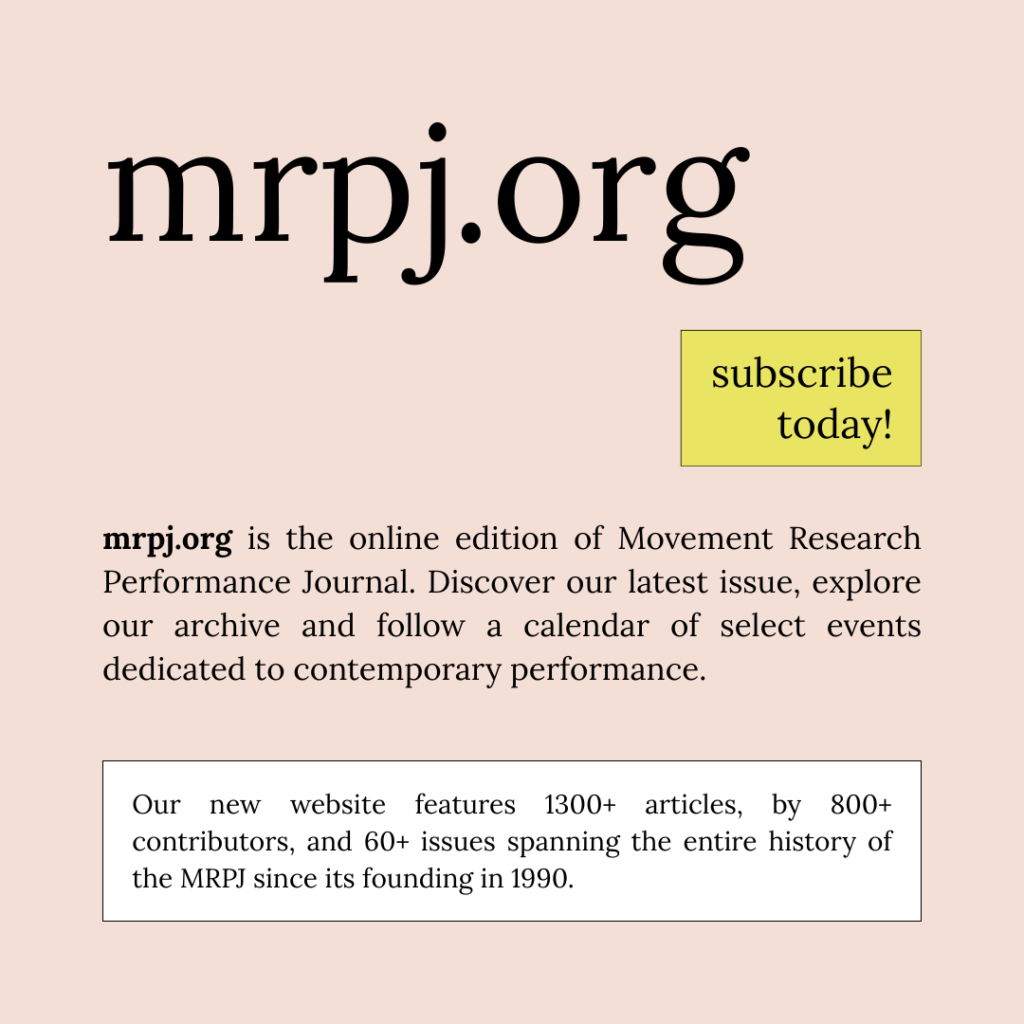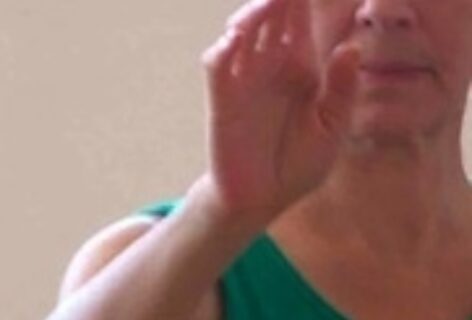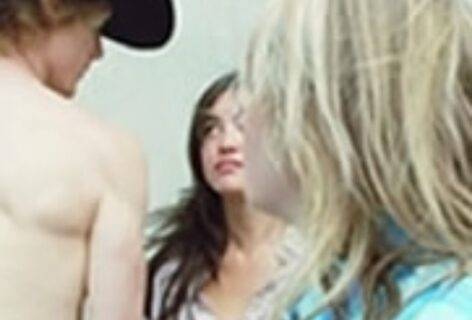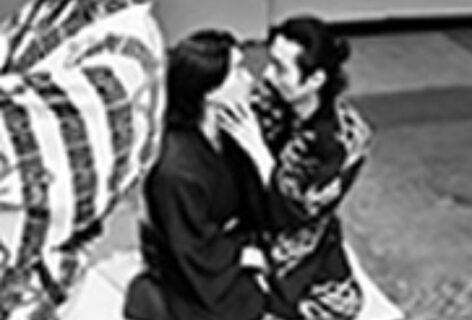Tess Michaelson: Do you want to say anything before we start a capital “C” conversation?
Willow Green: I just discovered that I can’t go off of this screen while I’m recording. So I’m pulling up the document in an elsewhere.
TM: It’s interesting that as a host, you aren’t allowed to do anything else.
WG: To get distracted.
TM: You’re like, I am the host. If anyone’s here, it’s me.
WG: Well, in a way, you’re kind of using whoever’s the host as the vessel.
TM: I’m definitely using you as a vessel right now by the way.
Do you…How are you?
WG: [laughing] Just laughter
TM: Your body movements will not be…
WG: We can caption any nonverbal communication.
TM: Yeah, yeah. Maybe we can add in little bracketed notes like “Willow moved their body in a wiggle.”
WG: Yeah, “wiggled avoidantly.”
No, I’m doing well. I am starting a bunch of new things, and closing one chapter, and feeling excited, but also – I mean, this is a topic – I feel perpetually astonished by the way life continues moving forward at all times, and therefore requires me to change. And sometimes I’m like, wait, I was having fun with this era.
TM: Interesting. Yeah, like your eras are cycling, like the land on which you live is turning.
WG: I texted someone earlier and I said, I’m feeling like the ground keeps moving. But otherwise, I’m okay.
TM: That makes me think about one thing that I wanted to talk about, which we can talk about now as it’s coming up or not. But thinking about time, and thinking about the feeling of – I don’t know if you relate to this – but thinking about the feeling that I have at least of being kind of perpetually behind. And always feeling like I need to be in some kind of rush. Or there’s some kind of urgency, which I can’t really name other than, like, possibly anxiety. But always feeling like I’m trying to catch up with the moment. And I’m not actually in that moment, but I’m just forever in pursuit of it, or, the feeling that I can’t take my time with things. And what is that? That’s something I’m really trying to counteract, in my practice as a person and as a maker and mover: taking your time, or taking my time.
WG: Time is fickle, and I have a weird relationship to it. I am unfortunately always dauntingly aware of the ending, the amount of time I have until the ending.
TM: I tend to pursue things that I know will end, and not even that I know will end just because I know everything will end eventually, but things that have that impermanence embedded within them, things that have deadlines or end-dates. I don’t know, I feel like I have a certain apprehension with staying.
WG: It’s a very controlled way to be unstable.
TM: I feel very protective of my time.
WG: To ensure that they will not continue.
TM: Yeah, but that’s another thing. I don’t know, wondering with writing, or moving, or anything — how do I stay for longer?
WG: But they keep going. Each time you “end” and you “start” something, the thing that you’re ending remains. There’s a continuation in a way. I know that when I start another movement practice, the ways that the other movement practices I’ve done, have lived in my body, 100% are present. Maybe it’s that I enjoy the meditation practice of letting things roll through like that. Yeah, my relationship to time is that I’m really excited by and most comfortable when things are allowed to live in layers. And so I’ll be in a space doing one thing, but I’ll have an awareness of the things that have accumulated before I got there, and an awareness that I’ll be carrying that to the next thing.
TM: It’s like your sense of the history in your body.
WG: I’m very interested in the history in the body.
TM: Do you want to say more about that now or no?
WG: As I’ve told you before, since moving to New York, I’ve been struggling with my memory. I feel like in the past couple of weeks, particularly starting as I was closing the last project I was performing in for Chaesong Kim at Columbia… I have been feeling like I have more access to all of my memories at once. They’re not just deciding when they come on their own anymore. Like, I’m actually able to navigate my consciousness.
TM: To feel less ruled by it or something.
WG: Yeah, I think it was interesting, when it was not me in charge.
TM: That’s something I think about a lot too: mastery versus a sense of allowing yourself to be mastered. Maybe mastery is not really the right word in that second example, but maybe I don’t want to be in control control. And why is the goal so often to master a language, or a method, or a discipline, or a field of knowledge? As if to think that you could know it entirely. And it’s boring in a way. Mastery provides a lot of freedom in some ways, because you have that dexterity, or as you’re saying, the ability to navigate your own mind. I’m more interested in the ways that things act on me than I act on them.
WG: And how do you act on them? Because I can imagine how I act on them. I can’t be sure what will happen if they act on me.
TM: Why would I want to be in control? It’s so much smaller of a world when I’m the one who’s deciding, and even pretending that I could decide. Do you know what I mean? I don’t think mastery really exists. What I was trying to say about time before was also the sense that, when I’m doing something, I feel very eager to have a lot of empty time. I feel very protective over, not necessarily empty time, but time where I feel like I can focus on things that are less nameable, or time for thinking and watching the world in a more present tense. “Getting things done” feels almost like a way of not getting the things I want to actually get done done. Not that I even want to get those things done, you know what I mean? But just to be near them.
WG: Yeah, I actually had a question for you that relates. We’ve talked before a little bit about your relationship to running, and how it is a very structured and regimented thing, and I’m wondering if you’ve been drawn to similar qualities in dance practices? Or if you’ve been drawn to the opposite? Or if you find yourself having difficulty actually accessing the opposite, or if you’re freed by it etcetera?
TM: Yeah, I appreciate that question. I feel like, as I’ve said – and this is not the case with you as much — but I don’t really talk about running as much as I feel my teammates, or my former teammates do. It’s not as forward facing a part of my identity as I think is normally the case at this level. I don’t really talk about it. I have a kind of shame about it in progressive dance spaces sometimes because of the kind of obedience that I associate with it. And that has a lot to do not with running itself, but the institution of running, or just college running — running as a business basically. It’s not even the competition aspect. It’s just running that is somehow tied to making money. And that changes things drastically, because competing can be a really beautiful thing.
There was a certain point in my life, at a very young age, when I started getting very regimented. Almost in every aspect of my life, there was a lot of structure and a lot of discipline and a lot of rules. And that was something that I collaborated on, and built with, my twin sister. It was a very insular world, very focused on control, and mastery, and accomplishment. And I feel right now, and very slowly, I’m kind of emerging slash rebelling against that whole ethic. Running kind of sits at a weird spot between those two things because running is genuinely a very joyful thing for me. I love it. But it’s also very much so a territory in which those qualities, that way of being, can thrive and be accelerated.
WG: Unlearning and relearning.
TM: I wanted to talk to you about this too — accomplishment, and the urgency to “accomplish” things. I’m thinking about it in relation to mastery. In dance and movement, I’m really interested in improvisation, which feels totally structureless. In writing as well — I still feel like I’m using writing as an exploratory practice rather than one of production. I could use some structure — at least, that’s the complaint. Especially in light of your recent news, how would you describe your relationship to accomplishment, or your feelings about the need to accomplish things?
WG: I’m usually not really looking to “accomplish” things. I’m usually looking for ways to get to the next set of experiences that I want, which in my case has been restricted or led by where funding and flexibility is available and in result it’s been very academic accomplishments. But it’s not about the name of the accomplishments, really. Like, I want to go do this thing and this is the way to do that. But I do imagine that perspective comes partially from not being good at recognizing my own success or not being interested in celebrating myself. I’ve been thinking about that a lot. Like, why am I not interested in celebrating? And why am I always looking for the next thing? I think some of that is a relationship to time, or I often talk about how I didn’t expect to live this long. I’m only 22, but it feels like everything is like this bought time. And I’m like, how can I do as much with it as possible? Or sometimes it’s even this is, you know — this is on my bleaker end — where it’s like, well, if I’m going to have to be alive, if I’m going to have to carry some of the things I have to carry, or whatever it might be, there’s a sense of urgency in me to have enough joy or stimulation to make it like worthwhile. Because I find that my biggest sense of dread comes from when I’m bored or understimulated, and there isn’t a next thing. And so I think the accomplishments are just a vessel to create a potential future in which I will hopefully continue to be engaged with things that excite me because otherwise I’m not really sure how to persist.
TM: No, I very much so relate to that — feeling like life is not that livable. I really have to find reasons to want to be here, or not even reasons necessarily, but I feel like I have to continually pursue things that make me feel good in order to, not even excel, but just to keep going. Do you know what I mean?
WG: I wish it felt more like excelling, but mostly it feels like it is just the continuing.
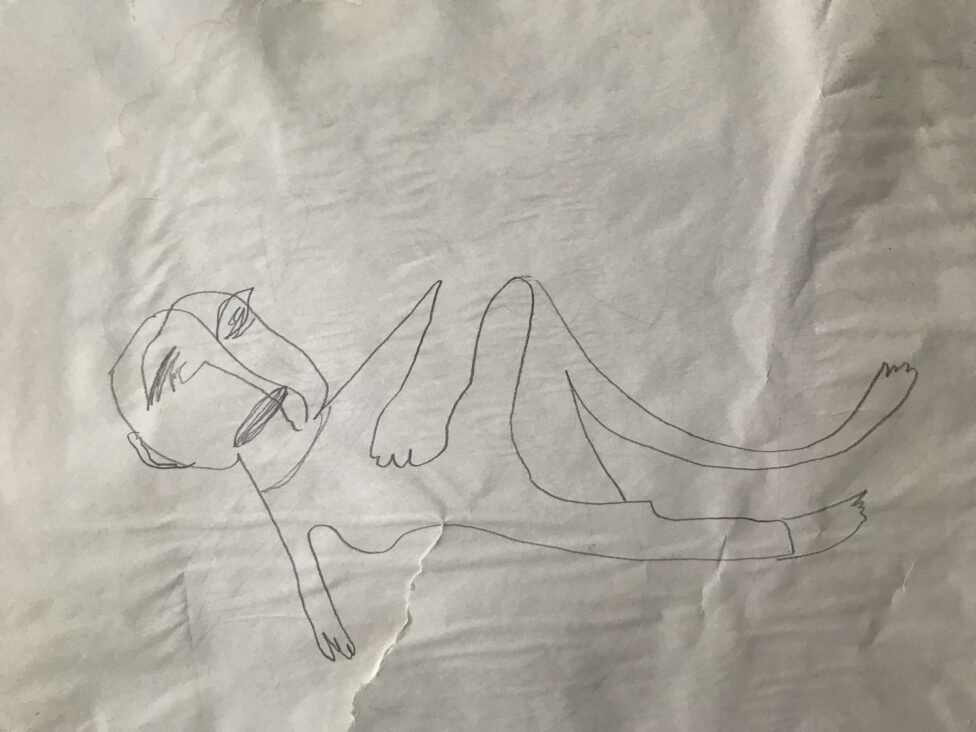
ID: Line drawing of resting figure by Tess Michaelson.
TM: Yes. At the moment I’m kind of investigating my own relationship to hard work. I mentioned I’ve been writing this review of a book by Lisa Robertson, who is this experimental writer and scholar. She wrote a book called Anemones, and part of it is thinking about the tension between love and force being — rather than class, for example — being the tension that animates history. Part of that question turns into a question about how we, today especially, force ourselves to do things. I spent a lot of my life, as we were talking about earlier, forcing myself to do things. From a really early age I feel I lost touch with the question of what I wanted. I feel like I’m very slowly — painfully slowly — trying to get back to answering that question. Should I do things I don’t want to do, and how often? In a way, I do believe in that kind of discipline. But there’s a violence to it in a way, in forcing yourself. A lot of the book talks about this medieval French idea of abundant consent, where consent is a practice that’s continually renewed not only in your relationships with others, but in your relationship with yourself as well. That’s something I’m trying to understand. Sometimes you have to force yourself to do things, and maybe that’s not a bad thing. But generally I’m trying to force myself to do stuff less. Then I’m, like, shoot, you know? I’m like, am I not accomplishing things? You know, I’m kind of slowing down, and there’s a lot of shame that comes with that.
WG: Are you slowing down? Or are you starting to do other things?
TM: It’s hard to say.
WG: Yeah, maybe those things don’t feel like they’re productive. But there are other things because surely your time is going somewhere.
TM: It really is. Something is definitely happening.
One thing I wanted to talk about was, as early career artists, what the process is, or how it feels to describe your work to others and the effort to find the words for what it is that you do. You probably had to do this in applications, especially for the Fulbright, explaining This is Who I Am, and This is What I Work On. I’m trying to become a little more public with my work, and I feel like the way I describe myself is always changing. I’m trying to find the words as I’m figuring it out, and vice versa – as if trying to find the words helps me clarify what it is that I’m doing, even for myself. Do you know what I mean? Do you relate to that in some ways?
WG: The writing comes more naturally to me. The speaking and the writing is easier. But in terms of how to explain my work, I was given a really wonderful piece of advice from one of my teachers when I was applying to the Fulbright the first time. She said, first journal for 10 minutes about why you want to do what you’re trying to do. And then go back through that and ask yourself, if you had to tell someone about it, what would they need to know? What do you need them to know? And so for me, I feel like that core set stayed pretty consistent for the past four years that I’ve been maybe writing about my practice.
TM: What do you tell people they need to know?
WG: I’m always obsessed with grief, with community, with queerness, and queer persona, and with the complicated relationship between utopia and dystopia, or a futurity slash the end of the world. Those are all pretty core. And then in terms of the non-thematic, I’m very interested in sustained time. I’m very interested in slow movement. And I’m very interested in how you transfer the Gothic and horror aesthetics of books and films onto the performance stage. I grew up consuming a lot of horror, in a Southern Gothic type of setting. Those are the key things I usually say. I’ll sometimes give my movement lineage because I think that its meaningful in the dance community particularly, because it’s an inter-woven practice. In a way I feel like in writing, you’re always sort of defining yourself in opposition to others rather than in relation to them. It felt like this in creative writing workshops, I should say. It was like, my work is unique because it does this. There’s this idea that you’re filling a gap. In dance, I always feel like I’m continuing a conversation.
I don’t know if that’s always true, but I think when I was experiencing education in both, there was the sense that in dance, there’s a willingness for you to be continuing a conversation, whereas in writing, there’s an expectation that you’re figuring out what makes your voice a singular one.
TM: Yeah. Well, then my question — to go back just a little bit — you were talking about the kind of main themes that permeate your work, what you do and what you think about, and you say it’s been pretty consistent. I’m thinking about that. How long has it felt that way?
WG: I think some of it is the repetition of types of events in my life. I remain interested in grief because I’ve lost people consistently. And I remain interested in community, because community is what has given me relief from a sense of loss. So there’s a lot of both of those things already existing, and then me self-selecting into them. I guess it helps too that it hasn’t been that long.
TM: How does your practice relate to desire? Or, how is your practice a kind of desiring? You know I’m a bit haunted by this project of imagining the work I want to be making, rather than the one I am making. Or, in what way is the work I am making a kind of imagining of the work I’ll never make, the book I’ll never write. I’m interested in, as I kind of wanted to do with you in this conversation — the conversation before the conversation — inhabiting, and expanding the preparatory phase, or the envisioning phase. But what does that mean? Why is the realized work — whatever that is — why is it not enough?
WG: Why is there more desiring?
TM: Or, the materialized work will never— I don’t want to say this, but it feels as though it will never be as “perfect” as the idealized work. It’s an obvious and old feeling: the idea being eternally better than anything limited by the actuality of existing. I’m trying to also counteract that feeling. I’m trying to tell myself that the material work, the thing that actually exists, is enough.
WG: I feel this is once again imagining an ending, right? Imagining that materialized work as an ending rather than an iteration.I think I definitely tend towards imagining everything I do as an iteration, which is really, on the list of core values that I’ve created for myself, it’s one I really like. I think it’s just… If everything is ongoing, then it’s like, it’s okay for it to not meet what I needed it to.
TM: Yeah, it’s an excerpt of everything, or it’s: here’s what’s happening right now.
WG: I think when I make work, what I desire is not usually a product; I’m usually very much just searching for how to communicate a feeling. For instance, with angels watch me through this night I was asking: how do I — without being harmful to the audience — communicate the cyclical trauma that lives in my body? How do I put it there, so that we can be together and look at it. I really wish you could just put your hand to someone you love and give, rather than trying to explain it. For me, performance art has been the closest I can come because it is an embodied visualization of something I’m trying to process. And I think that giving the other person the memory wouldn’t necessarily even tell them anyway. I think it’s showing them an iteration of the memory being processed into art that feels really impactful.
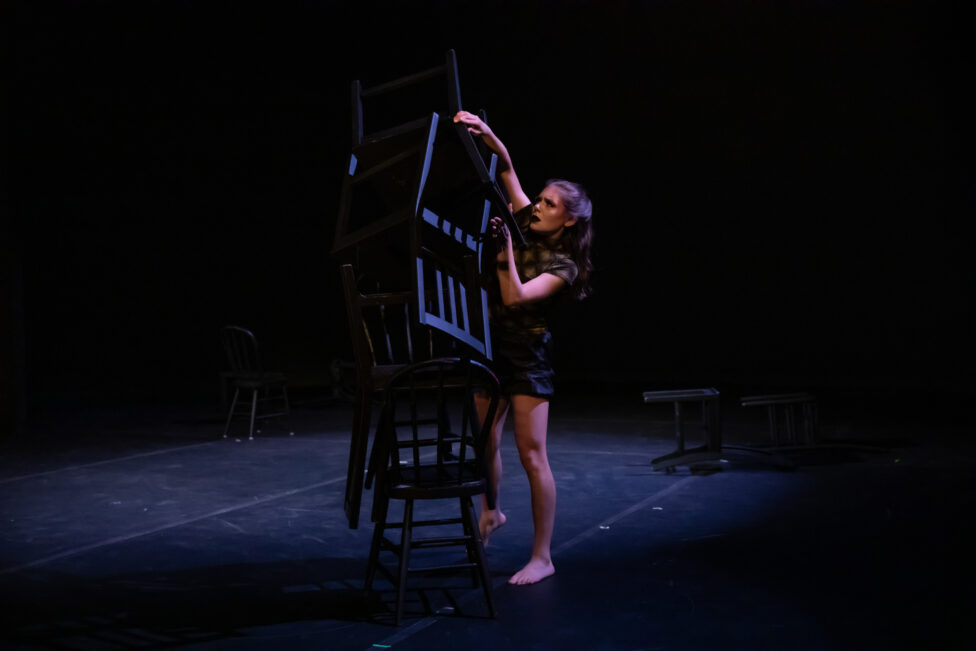
Katie Hileman performing in angels watch me through this night, choreographed by Willow Green, at Kenyon College. Photo by Luke Hester, 2021.
[ID: Dancer Katie Hileman is performing in a dimly lit space surrounded by fallen chairs. She is overshadowed by a tower of chairs, weight shifted to one foot as she contends with the task of adding another to the pile.]
TM: I was gonna ask you about this — how do you feel when you finish work? Or how does your work get finished?
WG: I run out of time.
TM: Yeah, I have a real world quote unquote deadline. The work is definitely not “done.” And, again, I’m not necessarily striving for completion, totality — like the mastery — but just following a desire for a way of doing something. This is what I’ve been doing with my writing practice. I’m just going to be pursuing a way of doing something or practicing a way of doing it. And I’m not necessarily going to look towards what I think this is. I’m going to try to not look at what I think it might all add up to. Eventually I’ll go back and reorganize and see what’s come of all this. Then again, this process-oriented approach sometimes stops me from sharing my work because it’s forever in-process and I keep telling myself I’ll share it when it’s done.
WG: I show my work too much. I’d just show it to people anywhere. Like, please, actually, I want someone else’s eyes on this.
TM: It’s hard to work in isolation. My dream, the thing I want most, the thing I feel I’m desiring is making and thinking truly with other people. So I’ll show my work sometimes to people who I want to be thinking with or who I want to be in conversation with. I’m like, I need help. What do you think? Because I have no idea if this is anything or not, and if it is something, what is it?
WG: Are you afraid that it won’t be anything?
TM: I’m definitely afraid. I still have my perfectionist roots. It holds me back in a lot of ways.
WG: When I show someone something, I’m always so grateful if they say “get rid of that.” And, obviously, if I want to keep it, I keep it. But sometimes they’re like, get rid of that and I’m like, yeah, damn, you’re right. I think that I show people work because sometimes I get to a point in a process where I’m like, I don’t even know. I’ve been looking at this too much. Somebody please, please tell me whether or not I should delete it. I should say, I have an easier time with it in art than in academic writing and academic writing. I have a very hard time showing people drafts.
TM: I’ve been thinking about the difference between practice and performance. And thinking that when I share work, or, when I publicize my work, that it comes with the assumption that it’s a performance, or performance in the capital P way, rather than this just being, again, an iteration of my practice.
WG: What if you just tag works “in-process” on everything? Pop it right on there. Disclaim it.
TM: Yeah, that’s a nice alibi there. And no one’s really gonna be asking, well, when will it be done? Unless money is involved, I guess.
WG: I think for me, it’s just there’s been so much time in my life that I’ve spent nonverbal or repressed or whatever. With my art, it’s almost like I really want people to see me. Like, please see it, so that you can see me. My work sometimes ends up heavy, but I love that dance is often an unmasked space for me.
TM: Grief and the end of the world.
WG: Two of the different types of panic, right?
TM: Yeah, I have a lot of ambivalence about being seen, I would say. I think I do a lot of hiding from everybody.
WG: Have you made work about it?
TM: In a way, my work is entirely about it, especially my writing. I was thinking about this — it’s not that deep or astonishing a thought — but the idea of writing being, on its most basic level, a mode of communication, of sharing, revealing, and explaining. I think that’s why my work is pretty difficult: it has a lot of ambivalence towards its readers. It’s threaded with a lot of internal resistance. But then, where does the impulse to write come from? I don’t know. I think maybe all writing, all literary writing at least is, is more about keeping secrets than sharing them.
WG: And how do you communicate that distance?
TM: Yeah, exactly. That’s the most important thing to me: to communicate the distance.
WG: Yeah. I think about communicating the distance a lot. I think about my anger that I’m trapped with the feeling. And not because other people necessarily want me to be, but by nature of what it is. There’s a boundary created between me and the world, and I’m not sure I’ll ever be able to take it down. I think that also goes into my work a lot. This question of, how do I both show you—because sometimes it’s a joy too—whatever emotion it is I’m having trouble feeling in the present because of what’s been created as distance? How do I also show you the distance because, without the distance, you don’t understand how big it is?
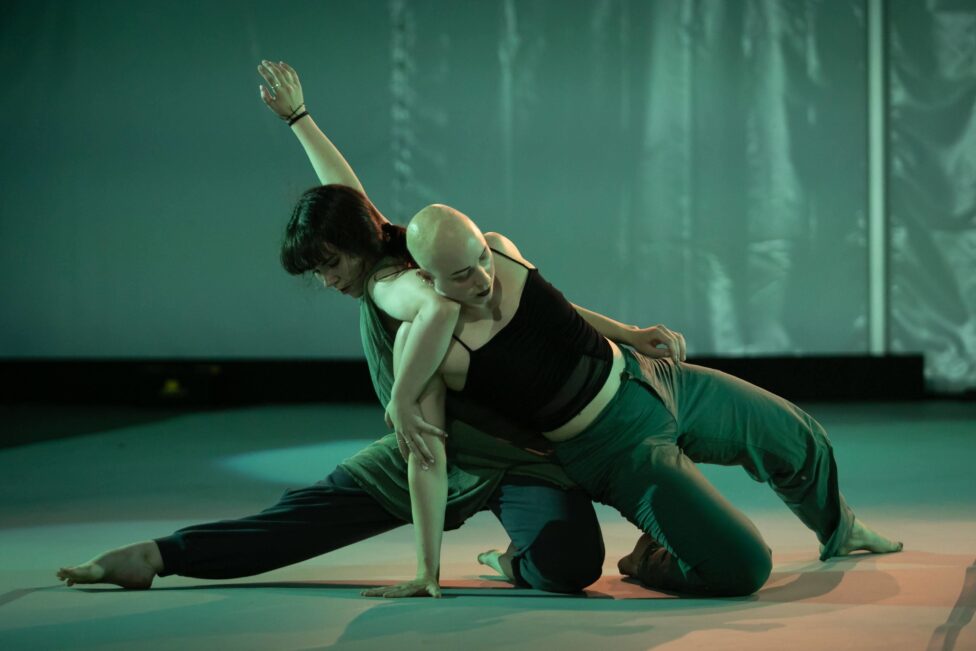
Julianna Massa and Hannah Lieberman performing in Before I Wake, choreographed by Willow Green, at the Jacob’s Pillow 2021 Intern/Staff Performance. Photo by Jamie Krauss, 2021.
[ID: Immersed in a sea of greenish light, two dancers are back-to-back, sharing urgent weight. Hannah Lieberman (left) has one leg extended, an arm to the sky, and a hand carefully grasping the other dancer’s arm. Julianna Massa (right) presses their back into Hannah’s, bracing themself into the ground and easing down.]
TM: Exactly, the distance becomes the primary experience.
TM: I’m thinking about what you said about there being a barrier. Another thing that I feel I’m in desire, or in pursuit, of is a sense of immediacy – as if there were something mediating my relationship with the world and wanting so badly to get closer to the world, to myself, or to anything really, you know, just to feel close.
WG: Just just to feel closer. I think the closeness is interesting, because for me, I’m only ever able to feel close when I try to let go of the control. But it’s really hard.
TM: Yeah, so hard. It’s really hard.
WG: But I also think at some point, I started to think of the difficulty as also interesting. And I think that’s helped. Or, maybe not interesting, but owning it as also mine.
TM: Or worthy of attention.
WG: Worthy of attention, rather than avoidance.
TM: Yeah, yeah. I guess, you know, I guess we should end, but I just want to say that this was really nice. I really liked talking to you. This conversation felt – I don’t know – I felt I could hear you more clearly, and that I could hear myself more clearly than in our past conversations.
WG: I’ve been thinking a lot about when I’m able to access things and when I’m not able to access them because sometimes, like you said, I’m far away, sometimes there’s a lot of distance, which is endlessly frustrating but also has to be respected, right? Do you have access points? What’s a portal in your life to feeling?
TM: I was gonna ask you this in a slightly different way. Which was, how do you wake up?
WG: Like the actual wake up though?
TM Right, exactly. I was in KJ Holmes’ class a few weeks ago and she was on the floor, and then got up and then kind of repeated that in different ways — not necessarily to demonstrate anything, but it was happening. And she said, “Well, look, I just gave you so many templates for getting up.” I really liked that, you know. There are so many different ways to get up. When I ask the question, I mean it in the sense of how do you actually wake up? But also, how do you wake up to yourself? I feel very far away from myself mostly. I feel like it takes me a long time to warm up. What is it that you do that helps you get into the space where you have access to yourself, or into the space of making?
WG: I was gonna say, I don’t know if I get to wake up every day. I think there’s plenty of days when I don’t wake up. I think that over time I’ve become more okay with that. I always call it like clarity rather than waking up. I’m like, I have sudden clarity that I’m existing.
TM: Oh, god.
WG: I’ll suddenly be like, oh, like, I’m feeling things a lot more vividly. I think that comes to me somewhat more naturally with dance. I’m a really memory driven person. When I feel far away, I often remember happy memories. I do a gratitude journal of sorts, but with fragments of memory. I’m like, what has made me feel loved? And then I try to use that to return. Yeah, I guess returning is also a way that I think about it.
TM: Yeah, no, I think we talked about that last time. How do you return to your body? This daily practice of trying to find your way back. Sometimes, yeah, you don’t find your way back. A lot of times, at least, I don’t. And then in those moments where you do feel like you’re there, like you’ve come to the surface a little bit more, feeling the need to take advantage of that time. A lot of the time I feel really turned off, just depressed and tired and uninspired. I feel like my experience is really muted. Because of how depressed I’ve been for so long, I think my body and my mind have kind of resorted to turning off for a lot of my existence.
WG: This leads me to a question I want to ask you: do you have a token? Do you have a tangible object? Do you have something that when you hold it, you’re like, this is little piece of me?
TM: No, I don’t. I really don’t.
WG: We’ve gotta find you a token.
TM Do you have a token?
WG: I have the tendency to acquire trinkets and tokens. What I was going to say is that I don’t know if it’s always the same one. One of them right now is the necklace that I got from my school when I won the dance award. I find that if I have things I take with me more places than not. They’re kind of ways to be like, okay, like, maybe the self is constantly changing, but this is still the self. I’m still here. Sometimes I intentionally leave the tokens behind.
Cover Image Description:
Close up images of Tess and Willow are side-by-side. On the left: Tess, a young white woman with blue eyes and blonde hair, gazes into the camera with a slight smile. Her hair blows around her in the wind. On the right: Willow, a white non-binary person with hazel eyes and blue hair, is lit by a diagonal light with rainbow edges. The image is a side-profile, and their eyes are cast downwards.


